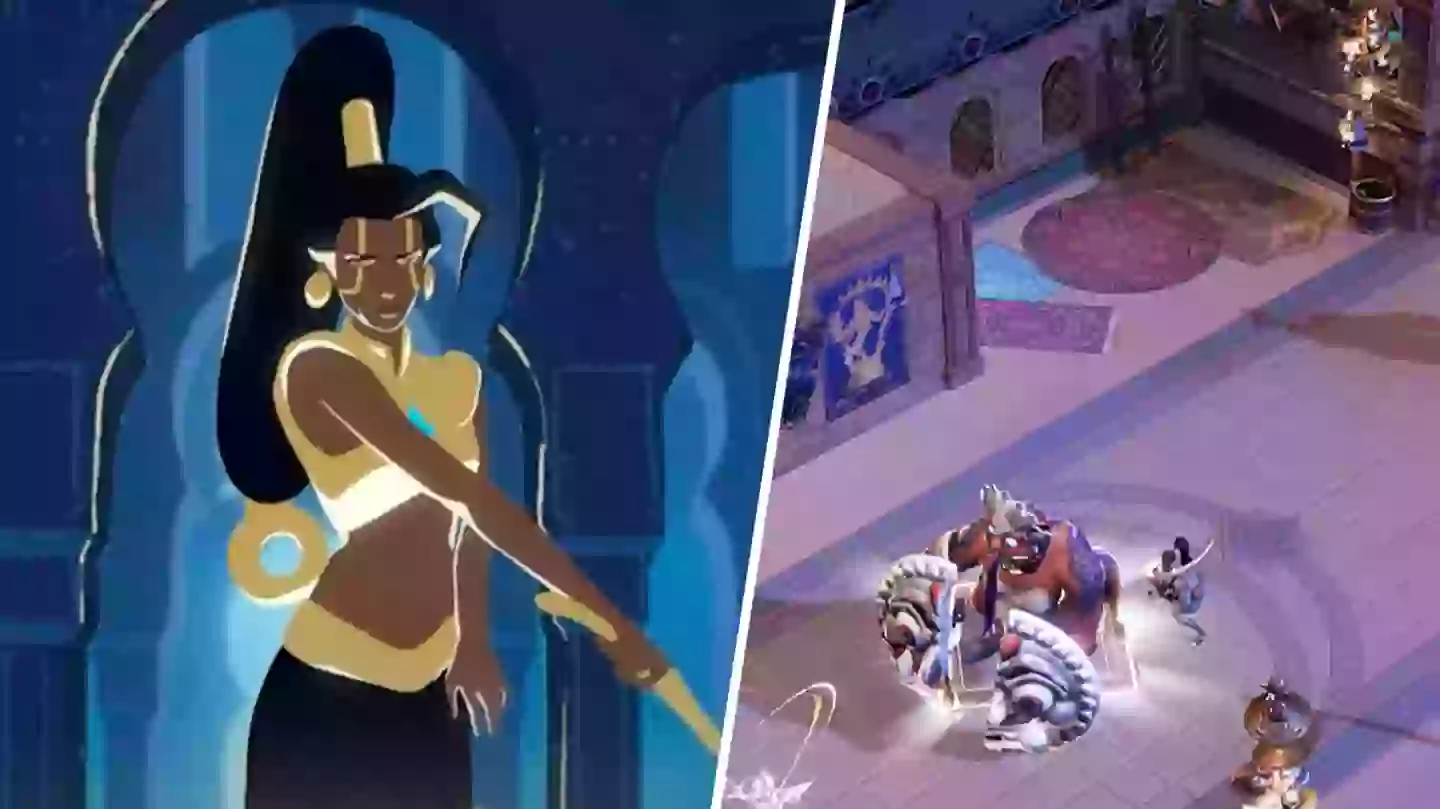
What the heck is Lysfanga? It might look like I’ve tripped and banged my head on the keyboard (that can happen), but it’s actually the name of one of the most exciting video games I’ve played in a very long time.
Lysfanga: The Time Shift Warrior, to give it its full name, is a dizzyingly inventive time-bending action game from developer Sand Door Studio and publisher Quantic Dream. Don’t let the Quantic Dream name put you off here, though. There are no cringe-inducing sex scenes or heavy handed race metaphors in sight. Lysfanga is a lean, mean, and deeply engaging hack-and-slash that’s all about tense, down-to-the-wire decisions.
Lysfanga’s time-bending concept is a little tricky to describe. The game’s combat essentially plays out in a very similar vein to the critically acclaimed Hades. You dodge and cut through swathes of demons, making your way through various, intricately built arenas. The big twist? You can rewind time and fight alongside echoes of yourself.
Say you find yourself in a large room split into three corridors. Say there are two groups of enemies hidden away at opposite ends of those corridors. You can’t possibly get to and destroy every enemy in the time limit you’re given, so what do you do? You tackle one group of monsters, kill ‘em dead, and rewind to the start of the encounter. Your echo will do everything you just did, freeing you up to head in the other direction and finish off the other beasts in the allotted time.
Advert
If that sounds like a lot to get your head around, well… it kind of is. But it’s a testament to the strength of Sand Door’s design prowess that I was able to pick up and play Lysfanga in the 20 minutes I had with the game. And I didn’t just get to grips with the basics, I felt legitimately awesome the entire time I was playing.
To be clear, that’s not me trying to brag - I’m pretty sure I was actually kind of crap at the game. I just mean that Lysfanga teaches you its complex web of systems in such a way that you never feel overwhelmed, or like you’re butting your head against an impossible challenge. In fact, the speed with which my demo started throwing out increasingly complex arenas and enemy placements speaks to a real confidence on the part of Sand Door.
The first few encounters are more or less as I described above, with large rooms requiring one or two echoes and plenty of room for error. Get a little further into the game, however, and you suddenly find yourself having to plan every move before you get stuck in. Gradually Lysfanga brings in new elements and obstacles, like a linked pair of monsters that can only be killed if both are drained of health at the same time, or doors that you can’t pass through if your echo slipped through ahead on a previous run.
Thankfully, you can review each arena before you decide to start your attack, which helps things from feeling too overwhelming. You are of course rewarded for quicker runs too, and encouraged to go back and try each encounter again and again until you bag that perfect score. Working in perfect unison with your past selves is an exquisite feeling, on par with chaining a perfect series of jumps in Celeste, or taking down a particularly tricky boss in Dark Souls.
Advert
Lysfanga has all the makings of the next classic indie, and I suspect it’s a game that will be particularly difficult for high score chasers and speedrunners to put down. Fighting alongside yourself in a time-bending adventure is an inspired core concept, and based on the sheer number of new ideas introduced in just 20 minutes with the game, I got the feeling Sand Door wants to push that concept as far as it possibly can. Personally, I’m more than happy to go along for the ride.
Topics: Indie Games, Steam